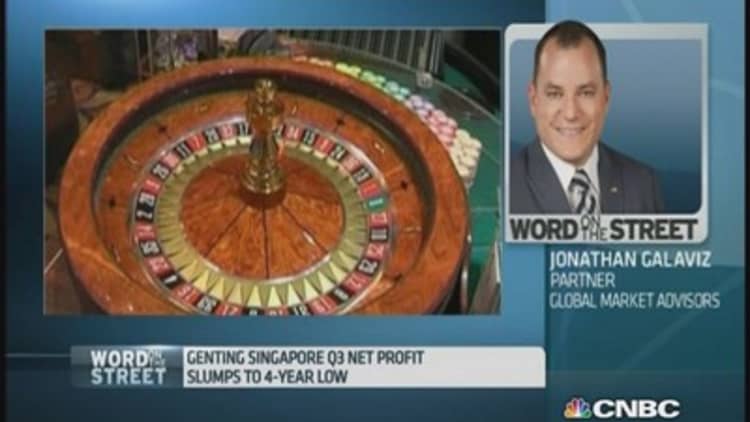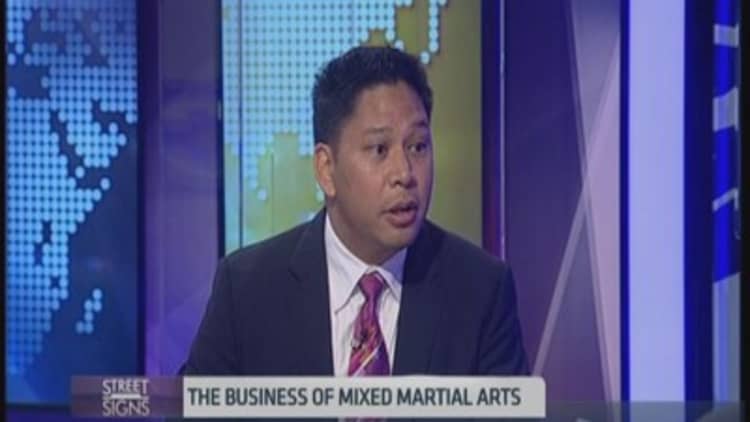A slower-than-expected rise in Singapore's inflation rate could mean disinflation in one of the world's most expensive cities is here to stay, according to economists.
Data this week showed headline consumer price inflation (CPI) inched up an annual 0.1 percent last month, the slowest pace since 2009 and the fourth consecutive month of mild growth. Meanwhile, core inflation, which excludes housing and transportation, fell to an eight-month low with an annual 1.7 percent rise.
"We think dim prospects for a near-term relaxation of the central bank's macro prudential measures [in accommodation and private road transport] makes headline disinflation the trend," said Tim Condon, head of research at ING in a note.
Read MoreSingapore revised 3Q GDP beats forecasts
In a report titled 'Singapore: Disinflation dynamic comes to the fore," economists from the Australia New Zealand Banking Group agreed; they expect headline inflation to remain subdued owing to the increase in supply of Certificates of Entitlement (COE) – the 10-year license that must be purchased to use a vehicle – and newly completed housing units.

Earlier this year, the government introduced rebates for public housing residents in an effort to lower costs, one of the key factors cited behind falling inflation. Other factors included a drop in electricity costs due a tariff revision and lower COE costs.
Ranked as the world's most expensive city by the Economist Intelligence Unit (EIU), Singapore is known for its strong currency and steep housing rents, some of the priciest in the world.
Read MoreHas Singapore's property bubble already burst?
Downside risks ahead
In response to the data print, the Monetary Authority of Singapore presented a less hawkish statement than previous months. Instead of sticking to forecasts for core inflation to rise in early 2015, the central bank simply said prices will remain "firm."
"The latest shift in nuance may reflect greater acknowledgement of downside risks to the existing official inflation forecasts," said economists at Citi Research in a note.
Read MoreSingapore easiest place to do business for 9th year
"We think headline inflation may turn negative in November and stay below 1 percent in 2015, while core may stay below 2 percent in the first half of 2015, possibly falling below 1.5 percent in the second half," they added.

Signals for a policy shift?
Core consumer prices must fall below 1.5 percent in order for the central bank to embrace a more dovish monetary policy stance, Citi said. Singapore's central bank sticks to tight monetary policy, which it manages by controlling the exchange rate instead of borrowing costs due to the economy's trade-intensive nature.
Read More
HSBC economist Joseph Incalcatera echoed those views, saying core CPI would have to decelerate to 1.5 percent in the first half of the year for the policy outlook to change.
"If this is juxtaposed with a further slowdown in gross domestic product (GDP) growth due to a weak external recovery, then there would be scope for a less-hawkish policy stance," he said.
Data released on Tuesday showed GDP grew 2.8 percent on year in the third-quarter, above estimates for a 2.4 percent expansion

